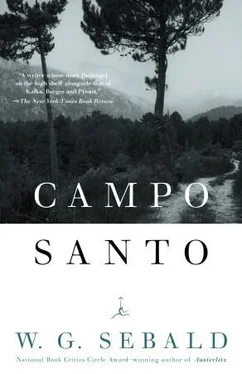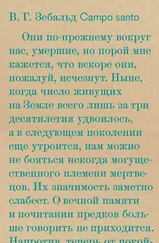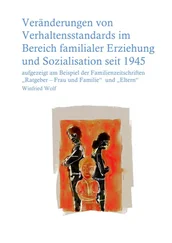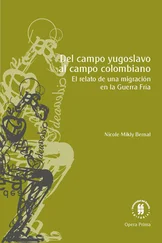The Mitscherlichs’ diagnosis of the inherent inadequacies of German postwar literature, which at this time was undoubtedly correct, does not register the fact that since the beginning of the 1960s, and at least since the appearance of Hochhuth’s in many respects devastating play Der Stellvertreter (“The Deputy”), several authors had begun auditing the balance sheet of German guilt.
We may account for the delay before they did so not least by remembering that the real dimensions of the genocide perpetrated by their nation were only just beginning to dawn upon men of letters unused to factual research, and the legal reconstruction of the circumstances of that mass crime had itself been delayed. The minds of authors who would be important in the further development of West German literature began to be politicized to the same extent as the legal procedures culminating in the Auschwitz trial in Frankfurt shed light on the functionalism of a “pedantically controlled apparatus of human destruction.” 11 Die Ermittlung (“The Investigation”), by Peter Weiss, whose road to Damascus the Frankfurt trial was, is one indication of that fact, and so are the Frankfurter Vorlesungen (“Frankfurt Lectures”) given in the mid-1960s by Heinrich Böll. These last mentioned say more about Germany and the Germans, and say it more cogently, than anything in Böll’s previous literary works.
Here for the first time Böll speaks, with his by now characteristic honesty and immediacy, of the lengthy emergence of recognition and emancipation in a country where “too many murderers [go about] freely and boldly,” people “of whom it can never be proved that they are guilty of murder.” And he continues: “Guilt, remorse, penance, insight, have not become social and certainly not political categories.” 12However, he does not say that literature itself fended off possible insights longer than was good for it, and that the political and social immobility and provincialism that the Mitscherlichs connect directly with the “doggedly maintained resistance to memories” 13had its counterpart in literary immobility and provincialism.
Just as the nation as a whole concentrated all its energy and its entrepreneurial spirit “on restoring what had been destroyed, extending and modernizing our industrial potential all the way to kitchen fittings,” so the literature of the fifties, in a kind of parallel process, was notable less for a desire to investigate the truth than for a certain resentment of the miracles achieved in the economy; a situation diagnosed by the Mitscherlichs as “political apathy with, simultaneously, a high degree of emotional stimulation in the field of consumption.” 14
Deliberately taking sides against political apathy instead of merely deploring the lack of foundation for this parallel to Father Malachy’s Miracle [8] The title of a 1931 novel filmed by the Austrian director Bernhard Wicki in 1961; the plot concerns the miraculous removal of a dance hall called the Garden of Eden from the city where it is giving offense.
was to a great extent the task of West German literati in the sixties. It provided them with their true éducation sentimentale as independent writers. These years of apprenticeship then found political expression in the commitment of many authors to political parties in the 1969 election.
This political commitment openly faced the question of the authenticity of democracy in Germany, where, as Böll has often reminded us, too swift and enthusiastic a readiness for reform aroused doubts of its real political substance. The commitment of Heinrich Böll and Günter Grass in the 1969 election was determined not least by the suspicion that their West German fellow countrymen would have been satisfied with a Christian Democratic Unity Party continuing into the future, from which they concluded that it was crucially important to the further development of democracy in Germany for the Social Democrats to come to power.
II. Günter grass: from the diary of a snail
The outstanding feature of the history of the 1969 campaign is the elation felt when the Social Democrats just snatched victory; once again, the true line of democracy in the Federal Republic was identified with the long march of the Social Democrats, and not least with the role played by the literary figures who forged ahead in the last phase of that arduous journey. Part of the sum total of this experience was the realization, now consolidated, that democracy is concerned with more than a healthy economy. Grass apostrophizes it in his Diary of a Snail by taking the popular clichés of the time expressing the nation’s new self-confidence and incorporating them in his text as quotations:
“… and now after twenty-five years. From rubble and ashes we. From scratch. And today we are once more. Without false modesty. As the whole world is forced to. No one expected it. We can hold up our …”
Yes, indeed. Story on story, and cost a pretty. Money in the bank all the same. Everything runs, flows, conveys, and lubricates itself automatically. Not just the victor powers, God himself comes to us for credit. We are again, somebody again, we are … 15
The question raised through this synoptic ridicule is directed at the nation’s mental identity and, as the collage effect of the Diary makes clear in its first pages, can be answered only by presenting the experience of success in the present together with the debit entries, still not correctly deciphered, of our past.
So this literary and political guide to the election campaign in Germany also becomes an account of the exodus of the Danzig Jews and the description of a place that had long remained a blank area on the map of any work devoted to Danzig. Without the passages describing the fate of the persecuted minority, the Diary of a Snail would surely have remained a work written on a single level. For only the dimension of concrete remembrance lends substance to the central story of the schoolmaster nicknamed “Doubt,” and on another level substance to the reflections on melancholy. The presentation of local history does not, as usual in texts about that act of genocide, deal with “the Jews” in a sense that, however terrifying, is abstract; instead the author and with him the reader understand that Jews from Danzig, Augsburg, and Bamberg once really were fellow citizens and fellow human beings, and did not exist merely as a nebulous collective.
The Fate of the Danzig Jews
We owe the story of the Danzig Jews as Grass tells it not primarily to the work of the author himself, knowledgeable as he is about the history of Danzig, but to the Jewish historian Erwin Lichtenstein. It is quite surprising to reflect that Grass — if his own text is correctly understood here — may in a way have come by the story gratis. “On my visit to Israel from November 5 to November 18, 1971,” writes Grass in a parenthesis in the Diary , “Erwin Lichtenstein informed me that his documents on ‘The Exodus of the Jews from the Free City of Danzig’ were soon to be published in book form by Mohr in Tübingen.” 16And in fact the impressively real details that lend authenticity to the account of the journey of the Danzig Jews traveling from their home into exile and from exile home again derive almost exclusively from Lichtenstein’s research.
We may leave aside the question of when, in developing his concept, Grass incorporated the exodus of the Jewish community of Danzig into the plan for his book. It is certain, however, that this chapter in the “dark, complicated story,” of which the narrator of Cat and Mouse says that it is not to be written by him “and in no case in connection with Mahlke,” could not ultimately be written by Grass himself, for German literati still know little of the real fate of the persecuted Jews. 17But as, to employ an image of Canetti’s, like all writers they follow their noses over the chasms of time, yet now, as Grass himself puts it, they have come home with “the sniffed insight that it smells everywhere, and not only in quaint one-family houses, that sometimes frankly and pungently, sometimes lavender-sweetened, here masked by refrigeration, there streaked with mold, and next door unspeakably, it stinks, because here, there and next door the cellars harbor corpses.” 18
Читать дальше












